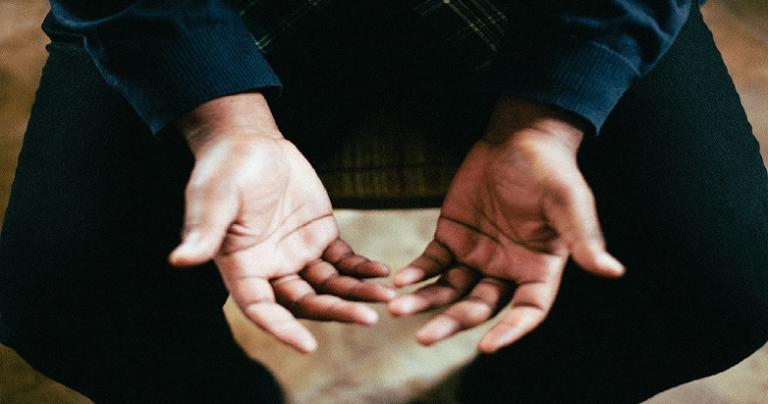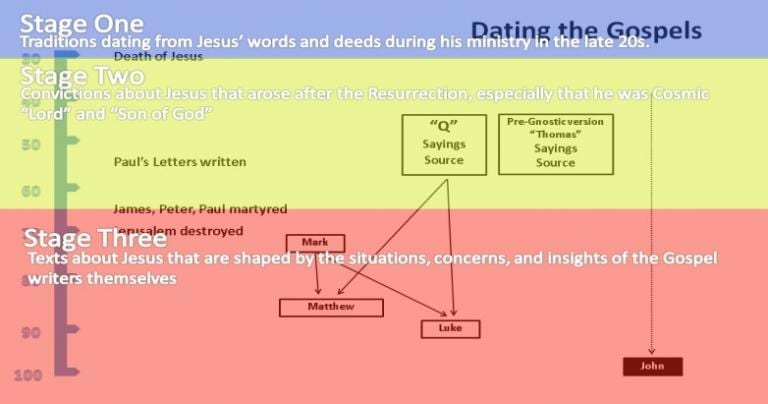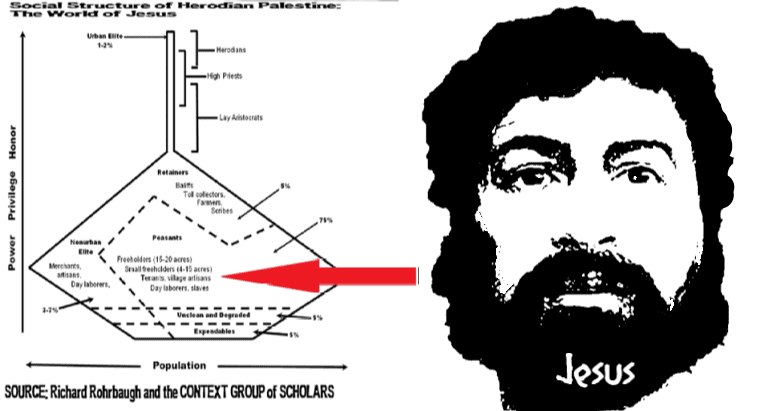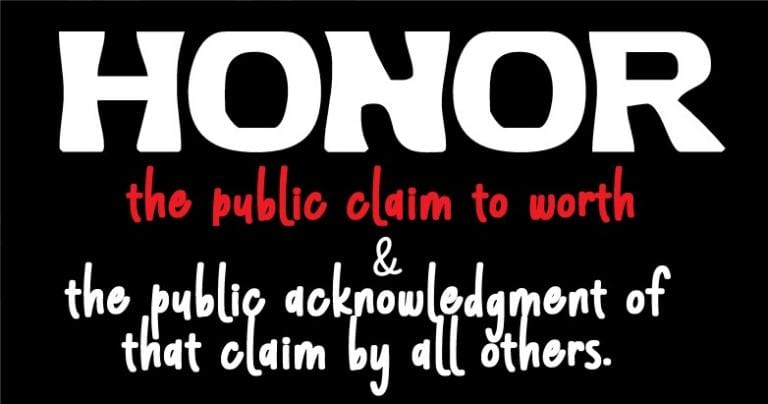
Prayer for Galilean peasants like Jesus and his followers involved a lived experience of Mediterranean Patronage.
Prayer tastes quite differently today than it did in Jesus’ world. In these dark days of American disgrace, parishes meander in useless feels addicted to the status quo and a disintegrating clerical culture that would make Jim Henson’s Skeksis blush. Still we proclaim “Good News” at daily Mass. Our muttered through daily Gospel selections turn to prayer and patronage (Luke 11:1-13) this week, two very misunderstood essentials of Mediterranean peasants like Jesus and his inner circle.
Ancient Prayer of Jesus & American Believers
Yesterday we read again the Lukan version of the “Our Father,” Luke 11:1-4. United States people—Catholics here included—strive to be self-made, “Bruce Wayne” types. Ours is the most individualistic culture ever. So we only cry out to God for help when suffering extreme economic crisis, life threatening health problem, or some other disaster. This affects how we understand the Our Father. As it was first known, this archetype for Christian prayer remains a remote thing for us, no matter how frequently we parrot it.
How big is God’s circle for self-made Americans? For the starving Galilean peasant, from which our Lord’s Prayer comes, everything depends on God being in absolute control. But it is quite a different story with American believers, no? We tend to go about life thinking we are “in control,” deluded by our apparent, yet precarious, 21st century superabundance and distractions. It’s so easy for Americans of any stripe to forget that all human beings are born between urine and feces and will soon become an all-you-can-eat smorgasbord for detritivores. Middle Eastern peasant day laborers like Jesus were much closer to this panhuman truth.
Biblical Prayer
In the Scriptures, the goal of prayer is getting results. Biblical prayer is, in essence, communication. In the Bible, the object of prayer is someone in charge, a big shot, some “great one.” The God of Israel was the biggest of all Mediterranean big shots, the One in control of everything. Thus, in the Bible people pray in order to acquire results from communicating with that ultimate big shot in charge of the cosmos.
As it has come down to us in both Matthean and Lukan forms, the “Our Father” (Matthew 6:9-13; Luke 11:2-4) does not appear to be an actual prayer for reciting, but rather a list of areas the followers of Jesus should petition God. Evidence suggests that both forms are too polished to have been taught by the historical Jesus, Stage One of Gospel Development. But undoubtedly the petitions of both forms do originate in Jesus’ starving Galilean peasant situation. So it is indeed “the Lord’s Prayer” even if it wasn’t given by him neat, tidy, and all together in either of the two forms.

Prayer and Patronage
Peasants everywhere realize they control just about nothing. This was undoubtedly true of Biblical peasants like the Galilean audience of Jesus. Rome and retainers called toll farmers exploited them by taxing their subsistence crops. Greedy elites stole their fields through kangaroo courts and made them into tenant farmers and day laborers on their own ancestral lands, dominating what they planted and harvested. Peasants had no control over these things or the climate and weather conditions.

The only thing peasants could do was pray. This is what Jesus’ dirt-poor followers are asking him to teach them. Jesus was seen as the broker who gains access to the Patron, the “Tom Hagen” who gets you into see Don Vito Corleone. What the disciples ask Jesus basically is a request to be taught to communicate and have access with the Patron just like he did.
https://www.youtube.com/watch?v=SdFUNhSQHQE&t=185s
Jesus addresses the God of Israel as his Patron or Mediterranean Father (see Luke 10:21; 22:42) and he encourages his disciples to do likewise. This is classic Mediterranean patronage, where clients are treated as if they were sons and daughters by someone with surplus and connections who can provide for them goods they themselves cannot on their own resources. Jesus invites his disciples to think of the God of Israel as a Godfather, a Patron who is ever-close and who provides for those he treats as his own children.
https://www.youtube.com/watch?v=B34sntIgI4g&t=6s
Hallowed be Your Name
“To Hallow” (Luke 11:2) or ” sanctify”means to set someone or something apart as exclusive. To understand “sanctification” in the Biblical sense, think of why you react differently to situations affecting your family members than you do for others when they endure the same joys and sorrows.
The expression “hallowed be your name” should be shocking. This is a passive voice command ORDERING God to “be in truth who he really is,” meaning, to reveal his exclusive stratus as God and Patron of Israel—by establishing theocracy NOW! This is why “your kingdom come” naturally follows “hallowed be your name.” It really is an outrageous prayer, if you think about it. But it isn’t more outrageous than the costly-grace challenge to elites presented by Jesus, the nothing-person from Galilee!
One of several reasons we know that these petitions collected together and liturgically polished into their present Matthean and Lukan forms could not have come from the prepaschal Jesus is that in their present shape they have become a regulatory prayer. Our liturgies start the prayer off with an apology because of this very reason. Humans should not demand God behave in a certain way! But that’s what both present “our Fathers” do, commanding God to behave properly!
Give Us Tomorrow’s Bread Today
Because of an interesting development from North African, Latin-speaking Messianists in the second century, we insert “daily” into both versions of the Our Father (as in “daily bread”). But the Greek word for daily actually meant “forthcoming,” or “for the morrow.” However you render it, the petition helps us see how peasants universally view time. Those scratching out survival at or beneath subsistence level, like the starving Galilean audience of peasant artisan Jesus, cared nothing for distant futures or long-gone yesterdays. Only the gods know those things. The dire needs of today press in on them!
Peasants everywhere are concerned with the immediate present, albeit a thick present including today and the literal tomorrow. Hence, “give us tomorrow’s bread today.”
Ask yourself: what does it take for any society (say like the United States) to be capable of a future orientation? One essential requirement would be that all present needs be consistently provided. Without leisure time, how could you come up with Rip Van Winkle, The Time Machine, or Star Trek? How many preindustrial peasants (i.e., Jesus and his Galilean peers) enjoyed such a situation of abundance and leisure? Answer: ZERO.
Peasants then and now drown in anxiety about crises rushing in at them, the forthcoming! Malnourished Jesus knew this, as he stood in village squares all day, humiliated and looking for work. “Give us tomorrow’s bread today” is a peasant begging his Patron for work. Should he not get work, many will starve in his village household complex. This is a far cry from our fat American lives with Starbucks, Uber Eats, and Fast Food on demand.
Parable about Prayer and God’s Patronage
Today’s Gospel gives the parable that follows (Luke 11:5-8). Hosting unexpected guests, in the middle of night a peasant asks his friend (i.e., his social equal) for help with food. Our English translations botch things up making the story about “persistence.” Look at how the NABRE does this:
Luke 11:8
“I tell you, if he does not get up to give him the loaves because of their friendship, he will get up to give him whatever he needs because of his persistence.”
That word in Greek rendered wrongly as “persistence” (ἀναιδίαν) is properly translated as “shamelessness.” Americans, who are reminded daily by our government that we have no sense of shame at all, completely miss this. Jesus wasn’t American. He comes from an honor-shame culture. Shamelessness is lacking a sense of shame, a careless attitude toward your social status.
The host asks his friend for loaves of bread, the food item providing Galilean peasants with fifty percent of their total caloric intake. He is counting on his friend’s solidarity and assistance so that he might fulfill Mediterranean obligations of hospitality. But his friend refuses. So what is really happening is that the host threatens to expose his friend’s shamelessness to the entire village. Either the sleepy man gives the loaves or come the morning his family will be disgraced, a fate worse than death in the Middle East.
Luke 11:8
“I tell you, if he does not get up to give him the loaves because of their friendship, he will get up to give him whatever he needs because of his shamelessness.”

Conclusion
This is where Luke 11:9-13 comes in. The peasant client of the Patron God of Israel can rest assured that unlike the shameless sleeper, God will provide. Seen through Mediterranean eyes, God cares very much for his honor! If even a potentially shameless friend will get off his mat to save his family honor, how much more will our Patron God defend his?
But again, given the cold indifference of our ostentatious American churches in light of daily global atrocities, who will listen or taste the truth of peasant Jesus and his Prayer? Who over here can listen? Who can understand any of this?












